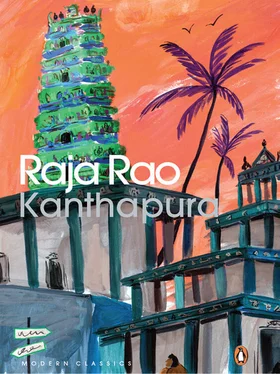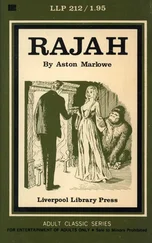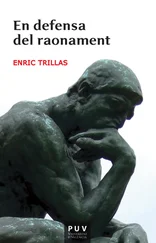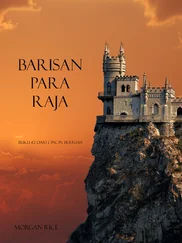Raja Rao - Kanthapura
Здесь есть возможность читать онлайн «Raja Rao - Kanthapura» весь текст электронной книги совершенно бесплатно (целиком полную версию без сокращений). В некоторых случаях можно слушать аудио, скачать через торрент в формате fb2 и присутствует краткое содержание. Год выпуска: 2014, Издательство: Penguin, Жанр: Классическая проза, на английском языке. Описание произведения, (предисловие) а так же отзывы посетителей доступны на портале библиотеки ЛибКат.
- Название:Kanthapura
- Автор:
- Издательство:Penguin
- Жанр:
- Год:2014
- ISBN:нет данных
- Рейтинг книги:3 / 5. Голосов: 1
-
Избранное:Добавить в избранное
- Отзывы:
-
Ваша оценка:
- 60
- 1
- 2
- 3
- 4
- 5
Kanthapura: краткое содержание, описание и аннотация
Предлагаем к чтению аннотацию, описание, краткое содержание или предисловие (зависит от того, что написал сам автор книги «Kanthapura»). Если вы не нашли необходимую информацию о книге — напишите в комментариях, мы постараемся отыскать её.
Kanthapura — читать онлайн бесплатно полную книгу (весь текст) целиком
Ниже представлен текст книги, разбитый по страницам. Система сохранения места последней прочитанной страницы, позволяет с удобством читать онлайн бесплатно книгу «Kanthapura», без необходимости каждый раз заново искать на чём Вы остановились. Поставьте закладку, и сможете в любой момент перейти на страницу, на которой закончили чтение.
Интервал:
Закладка:
But what a good expression he had on his face, sister! He looked a veritable Dharmaraja. And Rangamma told us never a man smiled more and sang more at home than he, and he was always the earliest to rise and the last to go to bed, yet he was always in the best of health. ‘Lemon water and gymnastics, gymnastics and lemon water, can keep the plague at the doorstep,’ he used to say, and to tell you the truth, never had Rangamma looked so healthy and serene as she did then. She was nearing forty, but she looked hardly thirty-three, and there was not a grey hair on her head. And she would work, too, then, she could talk and write and hold classes and sometimes she even went, they said, to meetings with Sankar. And once Sankar had asked her to say a few words about Moorthy, and she had stood up and spoken of Moorthy the good, Moorthy the religious, and Moorthy the noble, and she had found no more words, and she had come down from the platform and had begun to shiver and tears had come into her eyes. But she said that was the first time, but if she had ever to speak again she would have no such fears, and of course we knew she was a tight-jawed person and she could speak like a man.
Rangamma came back from Karwar for the Magh cattle fair, and two days later we heard that the Red-man’s judges had given Moorthy three months’ rigorous imprisonment. The whole afternoon no man left his veranda, and not a mosquito moved in all Kanthapura.
We all fasted. The next day the rain set in and it poured and it plundered all the fields and the woods, and Ramakrishnayya, going to spit over the railings of the veranda, stumbled against a pillar and, falling, lost consciousness, and that very night, without saying a word, without giving a sigh, he closed his eyes forever. And everybody said, ‘The rains have come; oh, what shall we do for the cremations? Oh, what?’ And Pandit Venkateshia immediately sent for the beadles and asked them to raise a mango pandal on the banks of the Himavathy, and the good Pariahs, they worked hour after hour during the night, and when the next morning the body was washed and the corpse tied to the bamboo, the rains suddenly lifted themselves up, and behind the jackfruit tree the sun rose like a camphor censer alit, and while the waters were still gurgling in the gutters, the procession hurried on, and they lighted the pyre in the open, and the head burst but a moment later, and we lifted our eyes to the heavens and muttered, ‘He goes the way of the saints.’ And Rangamma vowed she would take his bones to Kashi, but all of a sudden the river began to swell and when it came crawling by the pyre, people asked, ‘What shall we do? Oh what?’ but the swell bubbled out by the pyre and Rangamma gave a sigh, and when the body was ashed down whole and only a few cinders lay blinking behind the bones, a huge swell churned round the hill and swept the bones and ashes away. And we all cried out, ‘Narayan! Narayan!’ and that night, sister, as on no other night, no cow would give its milk, and all the night a steady rain kept pattering on the tiles, and the calves pranced about their mothers and groaned. Lord, may such be the path of our out going soul!
11
When Ramakrishnayya was dead we all asked, ‘And now who will explain to us Vedantic texts, and who will discuss philosophy with us?’ And Nanjamma said, ‘Why, we shall ask Temple Ranganna!’ but we all said, ‘Temple Ranganna! Well, he can hardly read the texts he repeats morning and evening, and he cannot explain to us about Vidya and Avidya!’ and Rangamma said, ‘Why, you know he is also a Bhatta’s man; after all, sisters, why should not one of us read the texts and we comment on them ourselves?’ and Nanjamma said, ‘No, we shall have someone to read the texts, and you shall lead the commentary,’ and Rangamma said, ‘Oh yes! why, our Ratna knows how to read, and Ratna and my sister are going to come and live with me, now that my mother has gone to my brother, and their house has to be rebuilt,’ and we all looked at each other, and we were silent, for never was a girl born in Kanthapura that had less interest in philosophy than Ratna. But we all knew Rangamma was a good woman and a pious soul, and if Ratna merely read out the texts, well, her tongue would not pollute them, would it?
And so every afternoon Ratna began to read the texts to us, and when it came to discussion, Rangamma would say, ‘Sister, if for the thorny pit the illusioned fall into, you put the foreign Government, and for the soul that searches for liberation, you put our India, everything is clear;’ and this way and that she would always bring the British Government into every page and line. And it must have been all due to her stay with Sankaru, for never had she spoken thus before, and she told us story after story from the Vedas and Puranas, and we all said, ‘Why, our Rangamma is becoming a learned person, and she will soon be able to discuss philosophy like Ramakrishnayya,’ and the more we listened the more she impressed us, and we felt there was a new strength come in Rangamma, and we said to her one day, ‘Rangamma, Rangamma, is it the city that gave you all this learning?’ and Rangamma is silent for a moment and then says, ‘No, sisters, it is not only that!’—’Then what else, sister?’—and Rangamma says, ‘Why, there is something else’—’And what is that, Rangamma?’ and Rangamma says, ‘Why, sisters, I saw Sadhu Narayan.’—’And what did he say?’ asked Nanjamma—’Why, he said nothing. He only taught me how to meditate. He said, “You do not know how to practise meditation, and I shall teach it to you,” and he taught me the first principles of Yoga, and I sit every morning now, and I take breath through the right nostril and the left nostril like my father did, and strength has been flowing into me.’ So Nanjamma said, ‘Why not show it to us, sister? You are not the only one who wants to grow saintly,’ and we all said, ‘Show it to us, Rangamma, show it,’ and Rangamma said, ‘Well, so be it.’ And on the following Thursday, after the clothes were washed and the ablutions over, we sat by the Himavathy, and Rangamma repeated the name of her guru, Sadhu Narayan, and she showed us how to control our breath, and from that day on Nose-scratching Nanjamma, and Post-office-house Satamma, and Gauramma and Vedamma and I, and even Ratna, began to feel stronger and stronger, the eyes burned brighter in the sockets and the mind deeper in the spirit.
And one day, when we had been practising this for days and days, Rangamma said, ‘Now, sisters, I have seen something in the city, and I should like to see it here.’ We all thought she was going to show us some new exercises, but they were no new exercises; she only said we should all get together and stand and obey her, and that when the Mahatma will call us to act, we shall have to go out and fight for him, but we said, ‘Nay, nay, we are not men, Rangamma!’ but Rangamma said, ‘In the city there are groups and groups of young women, girls, married women and widows, who have joined together and have become Volunteers-Volunteers they call them — and they practise exercises like the police, and when meetings are held they all get together and maintain order.’ And Nose-scratching Nanjamma said, ‘Why, I am not a man to fight, sister!’ and Rangamma said, ‘Why, sister, you need not be a man to fight. Do you know the story of Rani Lakshmi Bai, and do you know how she fought for India? Once upon a time when the English were still not masters of the country, there were many, many kings, and one king could not bear the other. So the English went to this king and said, “We shall help you to rule your people. We shall only collect taxes for you and you shall live in your palace and be a king,” and they went to another and said, “Why, you have enemies in the south and the east and the north, and you have to defend yourself against them, and we have a strong army, and we have much power and powder and we can defend you,” and the raja said, “Well, that is a fine thing!” and he gave them titles and land and money. And so the English would go from one maharaja to the other and one day they would be the kings of India. Now there was an imprisoned king in India called Tantia Topi, and then there was Rani Lakshmi Bai, and then there were small kings and big kings and many landless kings, and they all said, “We shall throw the Red-man into the sea,” and they all waited for the propitious moment. And then, sister, suddenly the army rose against the Red-man, for the Red-man wanted the Hindus to eat cow’s flesh and the Mohammedan to eat pig’s flesh, and the army rose and fought against the Red-man — that is why they call it the Soldiers’ Revolt, in their language — and this king and that king said, “Now this is the time to strike the English,” and they gathered together, and the worthiest of them was Rani Lakshmi Bai of Jhansi. Why, she rode the horse like a Rajput, and held her army against the British, beating them on the left and on the right, and the British went back and back, but one day they defeated her and she died upon her horse fighting to the last, fighting for her enslaved Mother. This, sister, I have read in books in the city, and Sankar told me many such stories. And know, too, sisters, how the Rajput women fought with their husbands, and if their husbands were defeated and the enemy was going to enter the fortress, they prepared the pyre and all went round it in prayer and finally jumped into the flames, for never a Rajput shall be slave.’
Читать дальшеИнтервал:
Закладка:
Похожие книги на «Kanthapura»
Представляем Вашему вниманию похожие книги на «Kanthapura» списком для выбора. Мы отобрали схожую по названию и смыслу литературу в надежде предоставить читателям больше вариантов отыскать новые, интересные, ещё непрочитанные произведения.
Обсуждение, отзывы о книге «Kanthapura» и просто собственные мнения читателей. Оставьте ваши комментарии, напишите, что Вы думаете о произведении, его смысле или главных героях. Укажите что конкретно понравилось, а что нет, и почему Вы так считаете.












